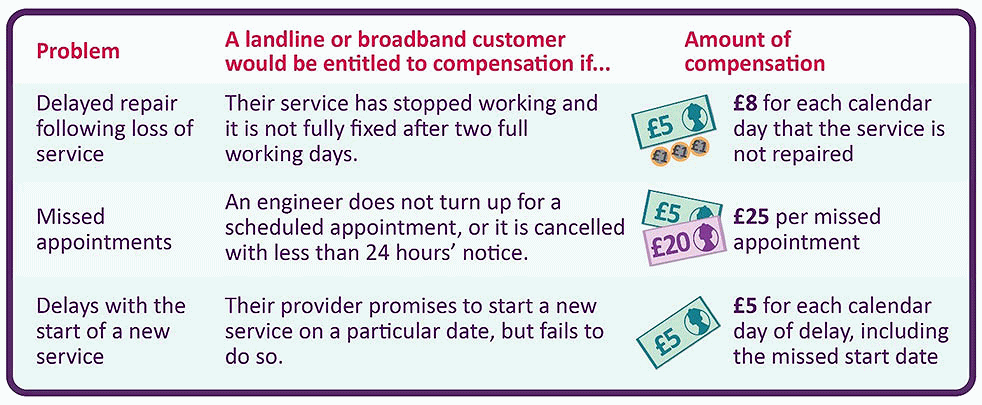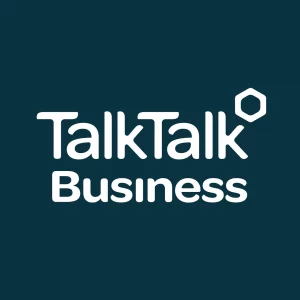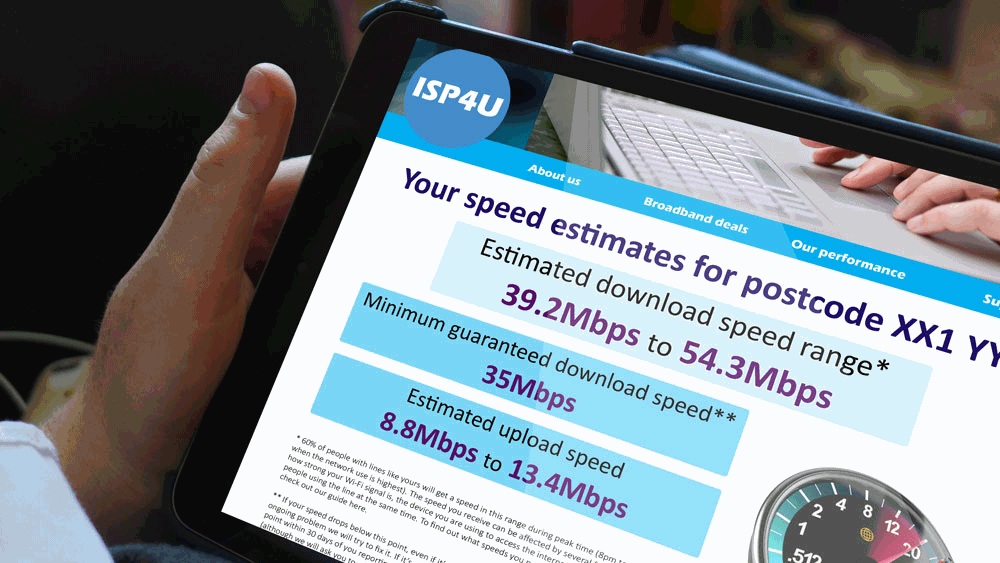- Introduction
- Official ISP Complaint Handlers and Procedures
- Unofficial ISP Complaint Handlers and Legal Counsel
- Common ISP Complaints and Advice
- Helpful ISP Complaint Tips
- Summary of Useful Consumer Rules and Laws
» Broadband Speed Code of Practice
» Advertising Standards Authority Guidelines
» Switching Provider (Migration Rules)
» Mid-Contract Price Rises
» Voluntary Open Internet Code of Practice
» Statutory Rights and General Consumer Laws
» Miscellaneous Rules
» Automatic Compensation
» End of Contract Notifications

But some rules are more important or relevant than others and in order to make your life easier we've attempted to list a simple summary of those which are most vital. Note that this page excludes any rules concerning the making of complaints, which is largely because these have been extensively covered elsewhere in this section (see above).
1. Broadband Speed Code of Practice
Most of the markets biggest ISPs have signed up to the regulator's Voluntary Broadband Speed Code of Practice (CoP), which requires them to explain to new customers the access line speed (i.e. a personal speed estimate for your connection) that they're likely to achieve at home (this is expressed as a range like "7.5Mbps to 9.2Mbps"), and to try to resolve any problems when speeds fall significantly below the estimate.
On top of that ISPs must also provide, upon request, the Minimum Guaranteed Access Line Speed (MGALS) for your line and this figure reflects the speed achieved by the slowest 10% of your ISPs customers (e.g. it will be around 0.8Mbps for ADSL2+ packages, albeit variable between different providers). The MGALS level is important because ISPs that fail to resolve any significant speed problems (i.e. your speed remains below the minimum) must offer customers the right to downgrade or exit their contract, without penalty.
At present the MGALS rule only applies to ADSL and VDSL (FTTC) based broadband providers, which means that it excludes Virgin Media's cable network and pure fibre optic FTTH/P providers or lines like those provided by Hyperoptic or Gigaclear etc. Satellite and Fixed Wireless providers are also excluded.
Ofcom has also introduced a similar code of practice for business broadband connections (see link further below).
UPDATE 1st March 2018
The regulator has confirmed that they will introduce an improved CoP from 1st March 2019, which will introduce several enhancements to help consumers. We've posted a detailed summary online but you can also get a good idea from the following list of changes.
2018 Speed Code Improvements* The code has been expanded to include ultrafast Cable (Virgin Media) and "Full Fibre" (FTTP/H) broadband providers, as well as the existing coverage of copper ADSL and hybrid-fibre FTTC (VDSL2 / G.fast) based services.
NOTE: For Cable and FTTP/H providers, where speed degradation is not normally affected by the length of the line, Ofcom will require that the minimum guaranteed download speed should be at least 50% of the advertised rate of the package instead of 10%.
* Estimates for upload speed must now be included, although the MGALS rule only applies to download performance. Ofcom said they will look at this again in the next review because "we did not consider that poor upload speeds were, in themselves, likely to affect most users' experiences to the degree that a general right to exit was warranted at this stage".
* The new code must also reflect the impact of network contention during busy peak-times (8-10pm for residential customers and 12-2pm for businesses). Speeds often get slower during busy periods because more people are online and related connections need to share their network capacity between many users in order to be affordable. Last year Ofcom stated that average download speeds for residential customers are 34.6Mbps during the 8-10pm peak period, compared to average maximum speeds of 39.1Mbps.
* Members of the code (ISPs) must now show the line's minimum guaranteed download speed before sale (at present you only receive the MGALS figure upon request).
* Providers will be given 1 month to resolve a problem where the speed falls below the MGALS level and if they fail then the customer must be allowed to exit their contract, penalty free.
* In order to deliver normally available speed estimates based on peak time speeds, member ISPs will now be required to test the actual speeds of a statistically meaningful panel of customers on each broadband package during peak time.
The new and old codes can be found below.
Ofcom's 2018 Speed Code
https://www.ofcom.org.uk/../codes-of-practice
2. Advertising Standards Authority Guidelines
The Advertising Standards Authority (ASA) enforces a number of guidelines against Internet and mobile data providers, which are designed to clamp down on misleading ISP promotions of broadband speeds and "unlimited" style usage allowances.
Firsly, terminology like “unlimited” can now only be used if the customer incurs no additional charge or suspension of service as a consequence of exceeding a usage threshold associated with a Fair Usage Policy (FUP), Traffic Management Policy or similar. The ASA also expects any limitations that affect the speed or usage of a service to be “moderate” and clearly explained in any advertisements.
Meanwhile ISPs are also required to demonstrate that their advertised speeds are achievable by at least 10% of users, but if a significant portion of an ISPs customer base receives a maximum speed that is much lower than advertised then the provider must qualify this via a "typical speed" range (e.g. "X% of our customers receive speeds between 3Mbit/s and 5Mbit/s").
The ASA also states that such speed claims must be accompanied by a warning, which references the fact that a significant proportion of subscribers may receive a speed that falls considerably short of what consumers might reasonably expect the service to offer.
UPDATE 23rd Nov 2017
The ASA has changed their rule (effective from 23rd May 2018) so that all broadband ISPs must now advertise "average" speeds on their packages (i.e. the median download speed available to at least 50% of customers at peak-time [8pm to 10pm]). The change is not enforced for upload speeds (to be looked at on a case-by-case basis) and it may also apply to business broadband services "where the circumstances of an ad are sufficiently similar."
ASA Guidelines (Broadband Speeds)
https://www.asa.org.uk/../broadband-speed-claims-guidance.html
3. Switching Provider (Migration Rules)
Ofcom's General Condition 22 (GC22) rule covers Service Migrations (i.e. switching between ISPs, including home moves). The rule was updated on 20th June 2015 to harmonise the existing processes and now requires that all ISPs operating off BT Openreach's national telecoms network (e.g. BT, Sky, TalkTalk etc.), or KC's platform in Hull, must follow the same simple to use Gaining Provider Led Notification of Transfer Plus (GPL NoT+) process.
Essentially what this means is that if you wish to change ISP then all you need to do is contact your new (chosen / gaining) provider and request to be switched. The new provider will then handle everything, which means you don't even need to engage with your existing ISP if you don't want to.
Sadly one rather significant caveat of this new system, which also existed under the older ones, is that Virgin Media's cable network, as well as satellite, fixed wireless and pure fibre optic (FTTH/P) ISPs, such as Hyperoptic, Gigaclear and B4RN, do not have to comply with the rules because they operate off physically separate platforms and in some cases only have to deal with a much smaller number of customers. As such if you wish to switch from those then you may need to cancel your existing service and then request a new connection.
ISPreview.co.uk's Switching Guide (2015)
http://www.ispreview.co.uk/index.php/2015/05/a-guide-to-switching-uk-broadband-and-phone-provider-after-june-2015.html
UPDATE October 2020
Ofcom now intend to extend the aforementioned migration system to include alternative network platforms (plus Virgin Media) - particularly full fibre (FTTP) providers like Cityfibre, Hyperoptic and Gigaclear etc. The change will not be enforced until December 2022 as it requires a significant adjustment across the industry.
The regulator adds that any "loss of service" that might occur during a switch will also NOT be allowed to exceed 1 working day and ISPs will be expected to compensate customers if things go wrong. Ofcom will also ban notice period charges beyond the switch date for residential customers, which is intended to prevent situations where a customer ends up paying for two services at the same time (despite only being able to use one of them).
Meanwhile the losing provider will be required to continue to supply the end-user on the same terms, until the new service is activated by the gaining provider, and to automatically terminate end-users' contracts upon conclusion of the switching process. The losing ISP will also be required to reactivate the number and all related services where a switching process fails and until the port is successful.
In keeping with all this the regulator will also be making some "limited" changes to phone number porting, which includes giving customers the "right to port their number for one month after they have terminated their contract and a prohibition on charging customers to port their number." At present it can be quite tedious to get your number back if it's lost during a switch.
Switching Changes for 2022
Click Here to Read
4. Mid-Contract Price Rises
Ofcom has also issued guidance against mid-contract price hikes, which as the name suggests are designed to make it more difficult for broadband ISPs, mobile and or phone providers to raise their prices when you're already part of the way through a fixed contract term.
Under the guidelines communications providers are supposed to give customers one month's notice of any price increases (this excludes optional charges, such as those levied for exceeding a usage allowance or calls to premium rate services etc.), which must be communicated to customers in a clear and transparent way.
Most providers will include a clause in your contract that allows them to increase their charges every year in line with the Retail Prices Index (RPI), although a lot of price increases go well above the level of RPI and in those cases the rules stipulate that customers should then be allowed to exit a contract without penalty.
Ofcoms Mid-Contract Price Hikes Rule
http://www.ispreview.co.uk/index.php/2014/01/ofcom-uk-measures-stop-mid-contract-price-hikes-start-tomorrow.html
5. Voluntary Open Internet Code of Practice
Both Ofcom and the Broadband Stakeholders Group (BSG) support the voluntary Open Internet Code of Practice, which broadly intends to ensure "the provision of full and open internet access" and to prevent ISPs using Traffic Management or Traffic Shaping practices to "degrade the services of a competitor."
The code is somewhat of a self-regulatory approach, which is supported by almost all of the markets major ISPs and mobile providers. Essentially it requires ISPs to clearly communicate any Internet traffic limitations to their customers and to avoid unfairly imposing restrictions against one Internet content service or app (e.g. YouTube, Skype) in order to favour another.
Core Commitments of the Voluntary Open Internet Code1. Users should be able to access all lawful content.
2. There should be no discrimination against content providers on the basis of commercial rivalry.
3. Traffic management policies should be clear and transparent.
Open Internet Code of Practice
http://www.broadbanduk.org/wp-content/uploads/2016/06/BSG-Open-Internet-Code-2016.pdf
6. Statutory Rights and General Consumer Laws
A "statutory right" is essentially a protection that consumers are afforded by the law, most of which stem from a series of several related laws that cover different aspects of the market from "goods" (e.g. toys, cars etc.) to "services" (e.g. electricity, broadband, mobile etc.). Naturally we're focused more on the 'services' side, although faulty modems or routers supplied by your ISP would be covered separately as 'goods'.
In simple terms, consumers have a right to expect that the service they order is of a satisfactory quality, fit for purpose and functions as described. For example, an ISP that deliberately misleads you about the service you're buying might risk breaching the Consumer Protection from Unfair Trading Regulations.
Similarly an ISP that puts a "no refunds" clause into their contract might risk breaching the law if they then fail to deliver what the customer paid for (e.g. because the service is broken). At this point the ISP might refuse to refund you, yet the law says they cannot easily sign away your statutory right to a refund. This sort of breach would be covered by the Consumer Contracts Regulations.
Various other protections are afforded by the Consumer Contracts Regulations (2013), which for example can refer to purchases made when the consumer isn't physically present to complete the contract (e.g. when ordering over the phone or Internet). In most cases this will give you a period of grace (e.g. 14 days) in which to cancel your contract if you're unhappy.
Another useful law is the Consumer Rights Act 2015, which on 1st October 2015 replaced the Supply of Goods and Services Act 1982 and a few others. Broadly speaking the act seeks to ensure that services are performed with reasonable care and skill, done for a reasonable price and provided in a reasonable time.
The act is designed to ensure that you can get a full refund or discount when the provider fails to achieve the above or attempts to impose contract terms that are deemed to be excessive or disproportionate. For example, a provider that charges you £300 per month for a service that you were told was £20 would be in clear breach and so would a provider that charged you despite failing to deliver a working service.
Finally, the act also requires that any key charges or fees be stated both prominently and transparently. In other words, consumers can use the law to challenge ISPs if they attempt to "bury" fees or charges in the small print. Previously you could not challenge unfair terms.
Consumer Protection from Unfair Trading Regulations (2008)
http://www.legislation.gov.uk/uksi/2008/1277/contents/madeConsumer Protection from Unfair Trading Regulations (2014 Update)
http://www.legislation.gov.uk/uksi/2014/870/contents/madeConsumer Contracts Regulations (2013)
http://www.legislation.gov.uk/uksi/2013/3134/contents/madeConsumer Rights Act (2015)
http://www.legislation.gov.uk/ukpga/2015/15/contents/enacted
7. Miscellaneous Rules
The following is a quick summary of some other rules that may be relevant or useful to know.
1. Contract Length: Ofcom and the EU currently require that any contracts for home / residential broadband or phone services are limited to a maximum term of 24 months (business services can be longer than that).
2. Value Added Tax: It's a requirement of the law that any home / domestic focused broadband packages should be advertised with the full price including VAT (20%). But be careful because a lot of business ISPs will use excluding VAT (+vat) prices and if these also offer home packages then they often make the mistake of using +vat on their home options too. In either case the ISP should always make clear whether their prices are +vat or inc. vat.
3. Postal Address: The law requires all ISPs to ensure that the geographic address at which they are based is displayed in an "easily, directly and permanently accessible" location on their website. A PO BOX address does not qualify and ISPs that fail to show an address are thus in breach of the regulations. Similarly ISPs also need to make contact details, including an email address, available to customers.
4. The Right to Exit: From June 2022 Ofcom states consumers will gain the "right to exit" their contract if there are any changes to their contract that they have not been previously told about and that are NOT to their benefit (e.g. removing service features). The right to exit will also apply to other services or equipment bought as part of a bundle with a communications service.
5. Contract Information: From June 2022 Ofcom states that providers will be required to deliver better contract information (e.g. customers should be given the information they need in writing, before they sign a contract - including a summary of key contract terms).
6. Dealing with Death: Nothing prepares you for the loss of a loved one, although in this instance it may prove useful to highlight the current rules for tackling late bills and other debts. Firstly, it's a common misconception that your debts are wiped away when you die and in fact they can sometimes be passed onto a relative or other personal representative.
In most cases when somebody dies that person's estate (i.e. all their assets and funds) are gathered together and redistributed according to their legal Will, which should ideally be handled by a solicitor, and any debts or payments will also be paid as part of that process.
Any "unsecured debts", such as phone, broadband, credit cards or water bills etc., are the last to be paid out by the estate and if there isn't enough money left to do that then the debt can fall onto the shoulders of a relative / personal representative. This is particularly true if any bills were in joint names because the other named party would inherit that responsibility.
However if the deceased didn't have a big enough estate to cover all of their liabilities then many of the debts can be written off, which prevents creditors from chasing surviving family members. In any case it's always wise to have a solicitor in your corner so that they can tackle all of the different hassles on your behalf.
In fairness it's not always easy for broadband providers and other utility companies to know for certain, unless a relative informs them accordingly, when somebody has died. As such it's important to contact the ISP as soon as possible, which will usually ask you to confirm the deceased person's account number, your name / address, your relationship to the deceased and any action to be taken (cancel the account). As a rule we'd always ask for written confirmation in order to give you a defence against admin errors like the one above.
Equally it's sometimes the case that a service provider will, in the event of a customer's death, simply wipe out any outstanding balance and cancel the account without hassle.
8. Automatic Compensation
In 2019 Ofcom introduced a new system of Automatic Compensation, which will require fixed line phone and broadband providers to pay residential consumers either a cash or bill credit when they suffer a total loss of service. This also applies to a third of small and medium sized enterprises (businesses) who buy domestic fixed line broadband services.
The compensation will only apply to faults that lend themselves to being "objectively defined and measured" and which have not been caused by consumers themselves (e.g. you wouldn't be compensated if you damaged your own home wiring or aren't at home when the engineer arrives).
Situations Allowable for Compensation
* The Customer's landline or broadband is not fixed quickly enough after it has stopped working; or
* The new landline or broadband service is not up and running on the day promised; or
* An engineer doesn't arrive for an appointment as scheduled.
Consumers would only be compensated if the total loss of service has continued for longer than two full working days and the proposed levels of compensation are as follows.

The new system reflects a voluntary industry initiative, which is being introduced by BT, Virgin Media, Sky Broadband, TalkTalk and Zen Internet (Plusnet and EE have also indicated they will join the scheme). However smaller ISPs are not included and would need to sign-up in order for the same rules to apply.
UPDATE 6th April 2021: Ofcom have announced that payments will increase from 1st April each year based on Consumer Price Index (CPI) as of 31st October in the previous year. For example, the change for 2021 means that providers must now pay out £8.06 per day for delayed repairs, £25.18 for missed appointments and £5.04 per day for a delay to the start of a new service.
Ofcom's Automatic Compensation Rule
https://www.ispreview.co.uk/index.php/2019/03/automatic-compensation-goes-live-for-uk-broadband-isp-consumers.html
9. End of Contract Notifications
On 15th February 2020 Ofcom introduced new measures that require broadband, phone and mobile operators to inform customers when they are approaching the end of their minimum contract term. At present many people do not remember when their contract is due to end and this can leave them exposed to post-contract price hikes.
Under the regulator's proposal, related notifications would be sent to all residential and small-business customers (i.e. 10 employees or fewer) who use services including landline, broadband, pay TV and mobile (either standalone or as a bundle). The notifications should be sent 10-40 days before the contract ends (this is because customers often have to give their provider up to 30 days' notice before they can cancel and ISPs need to allow time for delivery).
Providers would also be required to send a one-off 'out-of-contract' notification to all existing customers whose initial contract term has ended, and who weren't given this information at the time. The notification itself will contain details of any changes to their price or services and let them know their options (upgrades, discount deals etc.).
The new rule will not apply to short 30 day (monthly) contracts, although ISPs must still send a single annual notification (provided the customer has been with the same provider for over a year).
Ofcom's Contract Notification Proposal
https://www.ispreview.co.uk/index.php/2020/02/end-of-contract-letters-to-start-for-uk-broadband-isps-and-mobile.html








Latest UK ISP News
Helpful ISP Guides and Tips
- FTTP (6925)
- BT (3921)
- Politics (3124)
- Business (2824)
- Openreach (2706)
- Building Digital UK (2540)
- Mobile Broadband (2529)
- Statistics (2165)
- FTTC (2154)
- 4G (2134)
- Virgin Media (2071)
- Ofcom Regulation (1803)
- 5G (1786)
- Fibre Optic (1617)
- Wireless Internet (1615)































